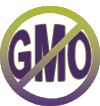Lobbyists Try to Keep Milk Information from Consumers
By Michael Hansen and Rhonda Perry
St. Louis Post-Dispatch
April 1, 2008
Missouri lawmakers are about to consider House Bill 2283, which would ban milk labels that inform consumers that their dairy products are free of artificial growth hormones. That's a remarkable turn of events, and it bucks a well-established national trend toward more information in food labeling, not less.
Why is Missouri going backward while the rest of the country goes forward on consumer information labels? The answer is St. Louis-based Monsanto Company, the biotech giant that markets recombinant bovine growth hormone (rbGH or rbST), a genetically engineered drug used to increase milk production in cows.
Monsanto and its advocates are claiming that milk from cows treated with the hormone is the same as natural milk, and that dairies are misleading consumers when they label their products "rbGH-free."
But, sales figures \u2014 and numerous polls \u2014 show widespread consumer demand for milk produced by cows not treated with the artificial hormone. For example, a 2007 Consumer Reports poll found that 88 percent of respondents agreed that milk from cows raised without synthetic bovine growth hormone should be allowed to be labeled as such.
As consumers have become more concerned about the effects of rbGH on human and animal health, demand for rbGH-free dairy products has grown. National food brands and retailers such as Ben & Jerry's, Tillamook Cheese, Starbucks, Kroger and, most recently, Wal-Mart have switched to rbGH-free milk.
The notion that consumers have a right to know whether their milk was produced by cows injected with artificial growth hormones has not been good for Monsanto's bottom line. According to the U.S. Department of Agriculture, the number of dairy cows injected with rbGH dropped from 22.3 percent of all U.S. dairy cows in 2002 to 17.2 percent in 2007, a nearly 23 percent drop. This trend in response to consumer rejection probably will continue: Many more dairies have announced that they will go rbGH-free in 2008.
Last year, Monsanto asked the U.S. Food and Drug Administration to reconsider its position on milk labeling. Monsanto claimed that labels identifying milk as "free of artificial hormones" or "from cows not treated with rbGH" cast doubt on the quality of milk that did not carry that labeling. The FDA disagreed, ruling that there is nothing wrong with labeling that tells consumers what is in or not in the milk they buy or how that milk was produced.
Since then, industry lobbyists and a new, supposedly grass-roots organization supported by Monsanto called American Farmers for the Advancement of Conservation of Technology have pushed for state legislation banning or restricting milk labeling in Pennsylvania, Ohio, Vermont, Kansas, Indiana and Utah. Almost all of these attempts have failed: Once consumers and farmers became aware that their rights were under attack, they spoke out, and lawmakers in those states dismissed the Monsanto-driven efforts.
But if Monsanto gets its way here in Missouri, the state's farmers no longer will be able to freely speak with their customers. Further, Missourians will lose the right to know if they are buying the safe, un-treated dairy products they have trusted for generations.
In fact, labeling is vitally needed because there are significant changes in milk and dairy products produced with rbGH. Use of the drug elevates levels in milk of another powerful hormone, Insulin-like Growth Factor 1 (IGF-1). Although there are no strong scientific data on whether IGF-1 absorbed from diary foods increases IGF-1 levels in the blood of humans, some studies suggest that it might.
There also are correlations between the use of rbGH and animal health problems. Studies show an increased risk for infertility and a 50 percent increase in lameness associated with rbGH use, along with an increased risk of mastitis, an infection of dairy cow udders. Mastitis is treated with antibiotics, the use of which can produce increases in bacteria that are resistant to those antibiotics. With doctors warning of the increase in antibiotic-resistant diseases, this development is a public health issue that should concern all Missourians.
Regulators in Japan, Australia, New Zealand, Canada and all 27 nations of the European Union have banned rbGH. We believe that rbGH is a product with no redeeming qualities: It is bad for the consumer, the cow and the dairies.
It is hard to understand why a family-farm state such as Missouri would want to interfere with supply and demand to protect a failing product. Giving in to the lobbyists would be an undemocratic and irresponsible action that puts Monsanto's corporate interests above Missourians' right to know what's in their food and the rights of dairies and farmers to tell them.
Michael Hansen is a senior scientist at Consumers Union, the nonprofit publisher of Consumer Reports. Rhonda Perry is a livestock and grain farmer from Howard County, Mo., and program director of the Missouri Rural Crisis Center.

